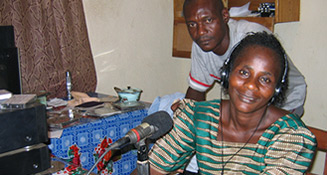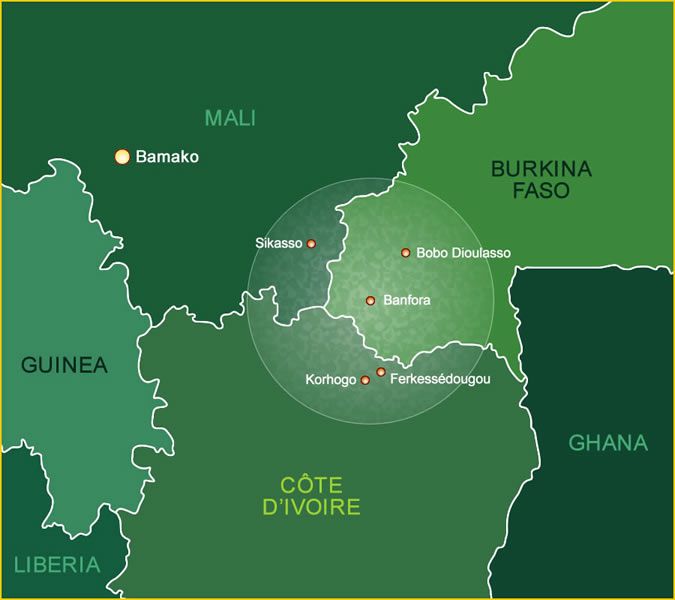 Version Française
Version Française
|
|
 |
|
Niger River Basin Grantmaking rationaleThe border region shared by Burkina Faso, Côte D’Ivoire, and Mali is characterized by its semi-tropical climate with good rainfall, fertile soil, forests, and abundant natural resources. The population is dense and multicultural in this mostly rural area with three main ethnic groups, the Bobo, the Senufo, and Dyula, who live together along the western border of Burkina Faso and neighboring Mali and Côte d’Ivoire. After independence in 1960, Ivoirian President Félix Houphouët-Boigny encouraged many Burkinabé and Malian agricultural workers to immigrate to northern Côte d’Ivoire to work on cocoa and coffee plantations. During his 30 year presidency, Côte d’Ivoire saw unprecedented peace and economic stability with the capital, Abidjan, becoming the main port to service West Africa. Houphouët-Boigny’s death in 1993 led to two coup d’états and political sentiment that turned against the citizens of foreign origin he had invited to supply the plantations of the north with labor. The resulting Ivorian Civil War, which began in 2002, saw the borders closed and the destruction of a once-strong regional economy. Burkinabé and Malian settlers were forced to return to their countries of origin, leaving behind their property and land in Côte d’Ivoire. Their arrival in Burkina Faso and Mali, countries some had never even visited, created tensions among those already living there. The situation is further aggravated by the fact that this resource-rich area is of great interest to commercial investors seeking opportunities for agricultural production, as lands in other part of the region are more negatively affected by climate change. The rural women of this border region are increasingly aware of the strategic role they and their organizations play in managing social change. They are committed to organizing themselves and increasing their ability to promote and secure their economic independence and autonomy in the face of political, economic and natural challenges.
|
